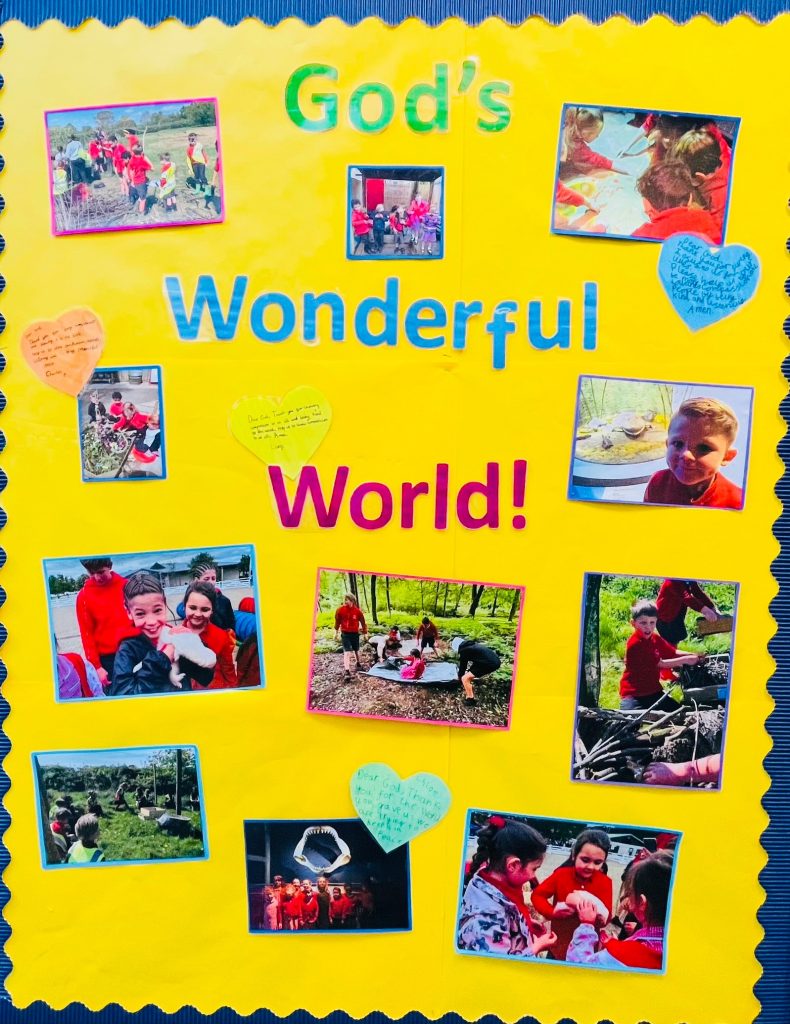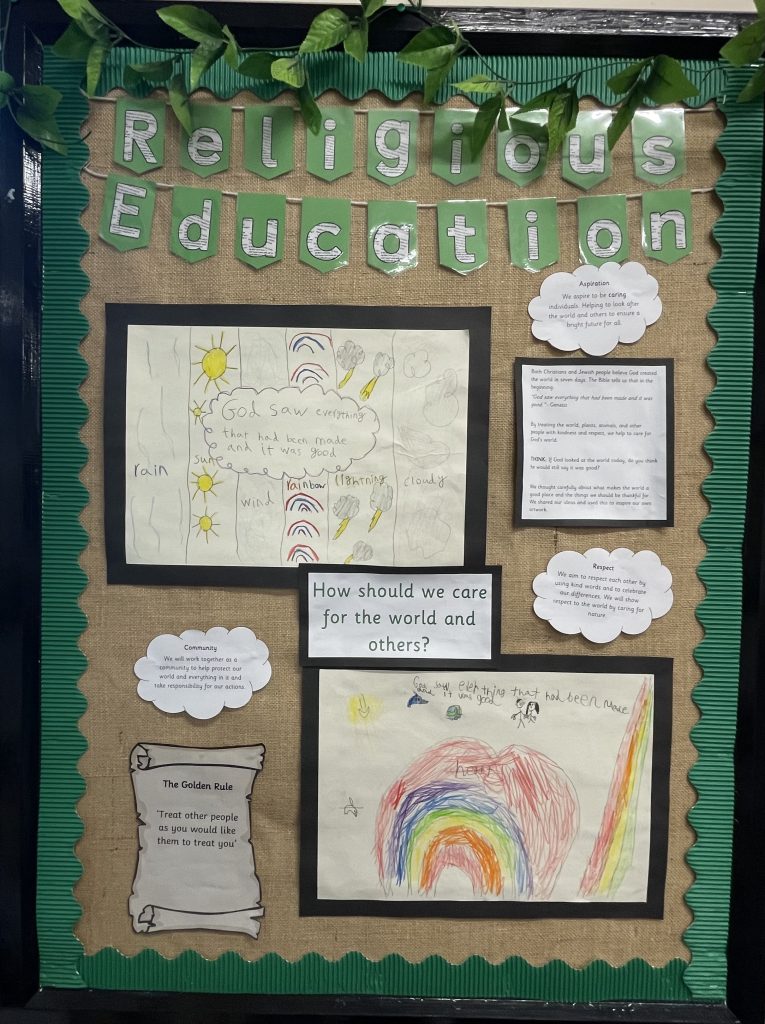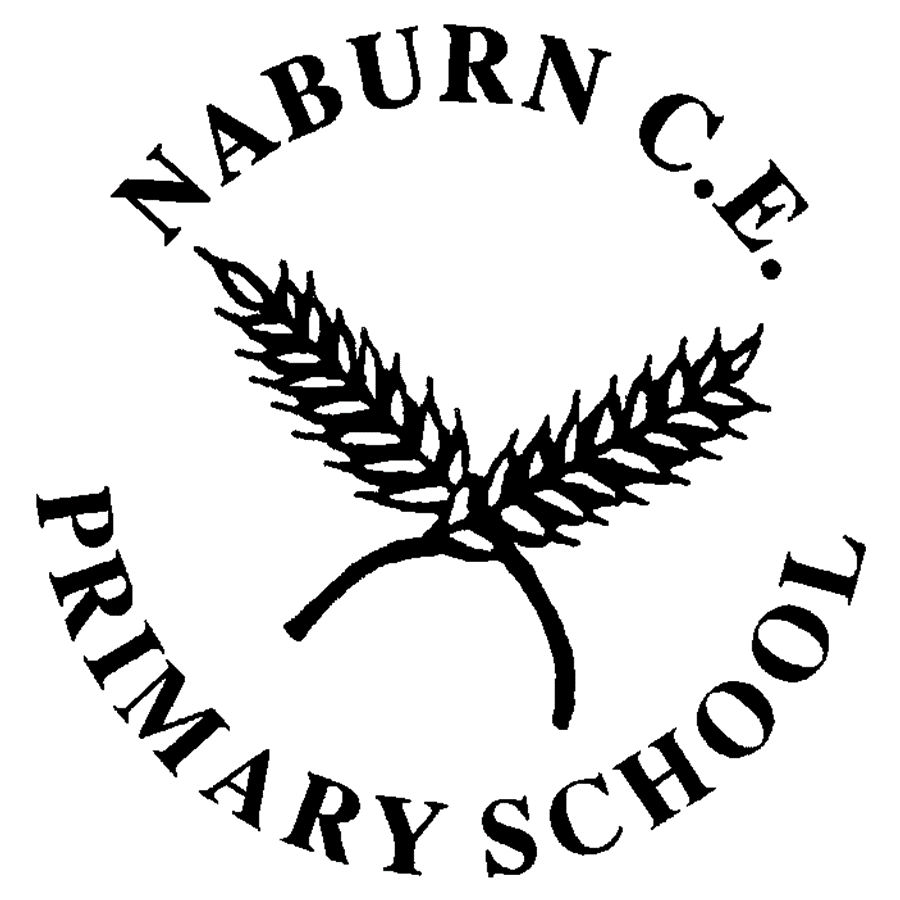Religious Education at Naburn
Intent
RE teaching and learning at Naburn prompts pupils to consider their responsibilities to themselves and to others, and to explore how they might contribute to their communities and to wider society. It encourages empathy, generosity and compassion. Through our curriculum, we strive to enable pupils to nurture their own spirituality and to build their sense of identity and belonging, which helps them flourish within their communities and as citizens in a diverse society.
Implementation
In R.E pupils discover, explore and consider different answers to significant human questions, in local, national and global contexts, through learning about and from religions and other worldviews. At Naburn, we aim for children to be inspired by different viewpoints, cultures and belief systems. We want our children to be able to weigh up the value of wisdom and to reflect on their own ideas and ways of living. Children’s spiritual, moral, social and cultural development (SMSC) is embedded across our curriculum, with pupils often being given opportunities to reflect on how the things they have learnt can affect and influence their own lives.
We inspire our children to explore faith and beliefs in different ways in addition to discreet weekly RE lessons:
- Religious Education lessons
- ‘Open the Book’ assemblies (led by Church of England Readers)
- Regular visits and assemblies delivered by our local vicar at St Matthew’s Church
- Family assemblies at Harvest and Easter where we showcase work
- Nativity and church carol services
- Workshops and assemblies led by YoYo (York Schools and Youth Trust)
Impact
Children gain knowledge and understanding of a range of religions and worldviews appreciating diversity, continuity and change within the religions and worldviews being studied.
How our values shine through in RE
Aspiration: Children explore their own religious, spiritual and/or philosophical ways of seeing, living and thinking, believing and belonging. Children engage in meaningful and informed dialogue with those of all religions and worldviews.
Respect: Children know that people have different cultures, beliefs and opinions and that this should be respected and accepted by everyone within our school
Community: Children understand that their own personal views and beliefs may change over time. They nurture their own spirituality and to build their sense of identity and belonging, which helps them flourish within their communities and as citizens in a diverse society.
‘The principal aim of RE is to engage pupils in a systematic enquiry into significant human questions which religion and worldviews address, so that they can develop the understanding and skills needed to appreciate and appraise varied responses to these questions, as well as develop responses of their own.’
City of York Agreed syllabus
The aims of the City of York Agreed Syllabus for Religious Education are outlined below:
- All pupils know about and understand a range of religious and world views
- All pupils express ideas and insights about the nature, significance and impact of religious and worldviews.
- All pupils gain and deploy the skills needed to engage seriously with religions and worldviews.
Curriculum Balance and Time
Reflecting the school’s trust deed or academy funding agreement parents and pupils are entitled to expect that, in Church schools, Christianity should be at least 50% of curriculum time. Sufficient dedicated curriculum time, meeting explicitly RE objectives, however organised, should be committed to the delivery of RE. This should aim to be close to 10% but must be no less than 5% in key stages 1-4.
| EYFS | planned within the EYFS Framework | |
| KS1 | 60 minutes a week | Religions and Worldviews taught – Christianity, Judaism, Islam, Hinduism and Humanism |
| KS2 | 75 minutes a week | Religions and Worldviews taught – Christianity, Judaism, Islam, Hinduism and Humanism |
At Naburn, our rolling two year RE programme introduces pupils to a range of relevant disciplines including theology, philosophy and the human and social sciences. The curriculum provides opportunities to engage in meaningful and informed dialogue with those of all religions and worldviews. We have written our curriculum according to the City of York Agreed Syllabus 2022 and it is supported by the Diocese of York Syllabus and the Understanding Christianity document.
Click here for the Long Term Plan for Religious Education.
You can find out more about SACRE on the City of York Council website. York’s Agreed Syllabus cannot be published on this website for copyright reasons, but parents and carers who have further queries about this are very welcome to enquire in school.



